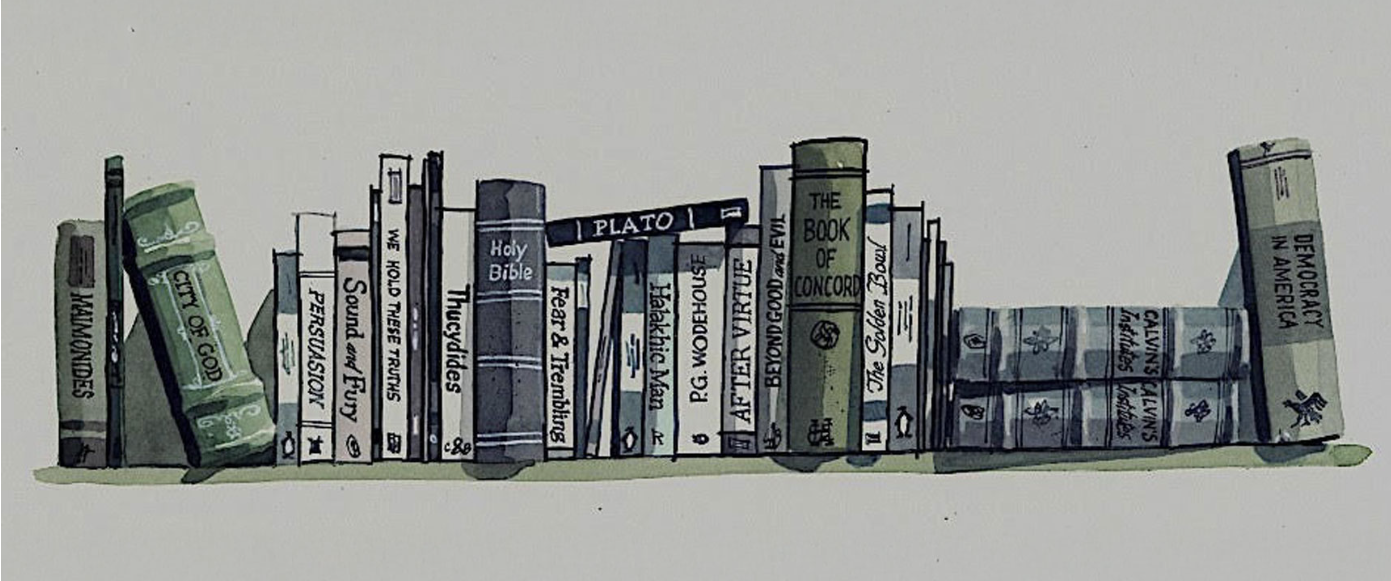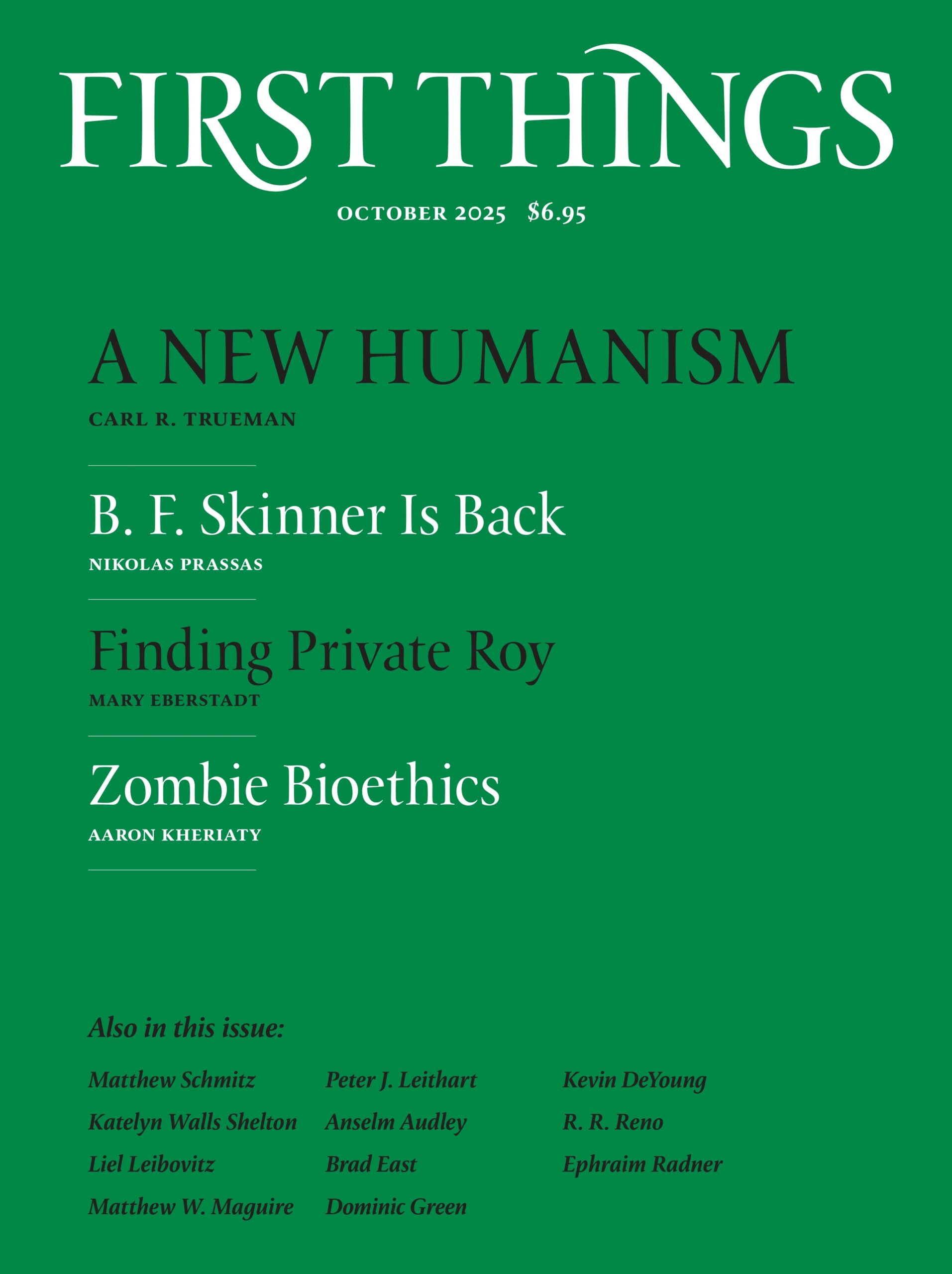
Eliot’s Angels:
George Eliot, René Girard, and Mimetic Desire
by bernadette waterman ward
notre dame, 420 pages, $65
In our world of social media influencers, we are just a click away from seeing twentieth-century social philosopher René Girard’s theory of mimetic desire worked out in real time. Influencers rely on mimetic desire, a triangulated relationship in which a person (the disciple in Girard’s terms) desires something (the object) because another person (the model) desires it.
At the beginning of Eliot’s Angels, Bernadette Waterman Ward introduces her readers to Girard’s theory of mimesis with a description of this mimetic triangle, before elaborating on other aspects of his work. Waterman Ward then examines the literary works of nineteenth-century writer George Eliot, mainly against the backdrop of Girard’s mimetic theory, focusing particularly on the character type she dubs the “Mimetic Angel.” Waterman Ward says that “the important accomplishment of the Mimetic Angel is learning to live without affirmation. This accomplished, as Eliot conceives it, the Angel is free of the need that most corrupts ordinary, mimetic mortals.” The Angel “puts joy aside and envisions no ultimate end; she can leave behind the virtue of Hope.”
Girard’s work, however, is not the only analytic tool operative in Eliot’s Angels. Waterman Ward’s careful attention to Eliot’s letters makes the book almost as much a biography of the author as an engagement with her works. In exploring Eliot’s intellectual life, Waterman Ward also introduces readers to the philosophy of Auguste Comte, David Strauss, and Ludwig Feuerbach, whose ideas about religion and social progress she traces throughout Eliot’s works. Waterman Ward conveniently divides and names her chapters according to Eliot’s major literary works in chronological order; thus, the book can be read either cover to cover if one desires to understand the intellectual and historical context of Eliot’s life, or chapter by chapter if one wishes to focus on analyses of particular novels. Anyone hoping to dive deeply into George Eliot’s life and works, the mimetic theory of René Girard, or social philosophy in the nineteenth century will find Eliot’s Angels an engaging and illuminating read.
—Susan Matassa
American Mother
by colum mccann and diane foley
etruscan, 256 pages, $25.99
Even if we didn’t actually see it—because who, in their right mind, would want to watch?—we all remember the death of Jim Foley, the American journalist held hostage in Syria. 2024 marked the ten-year anniversary of his public beheading by ISIS. Now, his bereaved mother Diane, with the help of an award-winning Irish novelist, has written a kaleidoscopic account of Christian faith in extremis.
After Jim’s abduction, Ms. Foley’s Catholicism provided her with a steady resolve. Then, after Jim was murdered, her faith-filled fury roused her from her grief, compelling her to act. More than a crutch or coping mechanism, the cross, throughout, is the axis upon which her life turns.
Which is not to say the book is only, or even primarily, about religion. Mostly it is a thrilling tale of Ms. Foley’s advocacy efforts and her fateful meetings with one of her son’s assassins, who is currently serving a life sentence at ADX Florence in Colorado.
For Christian readers, the book is “difficult.” Not hard to finish, but hard to put down and hard to stomach. It reminds us of how wonderfully grueling—emotionally, politically, psychologically, spiritually—the life of the cross can be.
What does it mean to be “pro-life” when your own life has been desecrated by the fatal maiming of the flesh of your flesh? Are we really called to forgive, meet with, and even attempt to love someone—himself a monster but a husband and father, too—who unforgivably used an innocent man as scapegoat for America’s sins? And why and how, during his life’s greatest hardship, did Jim Foley, a Catholic, convert to Islam, seemingly uncoerced?
Along with the artful prose, tensions between justice and mercy, and between Islam and Christianity, make American Mother a powerful read.
—F. Cartwright Weiland
Still Life, Still Sacred
Renaissance painters would use life-sized wooden dolls called manichini to study how drapery folds on the human…
Letters
I am writing not to address any particular article, but rather to register my concern about the…
While We’re At It
Propaganda: misleading and biased portrayal of facts, often used to inculcate and reinforce an ideology or political…

